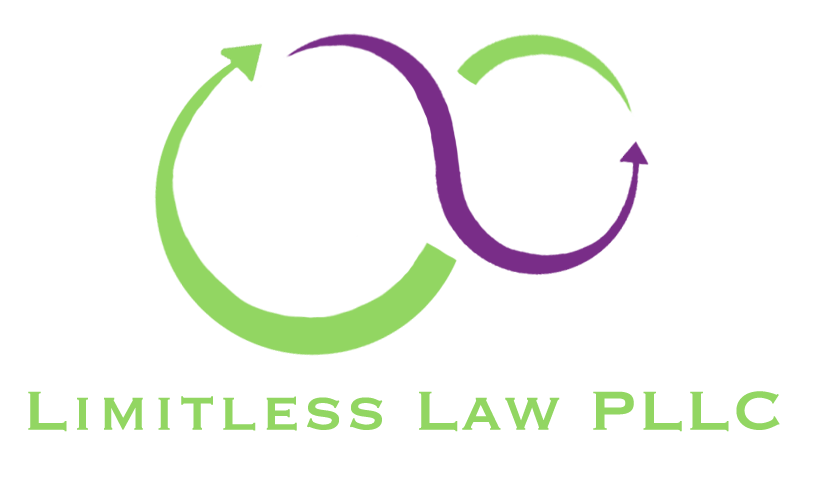Who Gets My “Stuff” When I Die?
Disposition of Tangible Personal Property in Washington State

In Washington State, the laws governing the disposition of tangible personal property offer people a way to determine who will receive their personal belongings after death. While many people focus on distributing assets like real estate or financial accounts in a will, it’s equally important to decide who will inherit your personal items—furniture, jewelry, collectibles, family heirlooms, and other belongings of sentimental or monetary value.
Washington’s laws make it relatively straightforward to ensure that your tangible personal property is distributed according to your wishes. This post will explain how you can designate who gets your stuff and how the law supports your decisions.
What is Tangible Personal Property?
Tangible personal property refers to physical items that you own that have value but aren’t real estate or intangible assets (like stocks or bank accounts). Examples include:
- Furniture, artwork, and appliances
- Jewelry, clothing, and personal effects
- Vehicles, collectibles, and other physical possessions
Washington State law does not treat these items the same way it treats larger assets like homes or bank accounts. However, the law provides avenues for individuals to ensure their wishes are followed after death.
The Basics of Designating Who Gets Your Belongings
In Washington State, how your tangible personal property is distributed after death typically depends on your will and any specific designations made in it. Here’s an overview of how you can go about it:
1. Designating Personal Property in a Will
The most direct way to ensure your personal property is distributed according to your wishes is through a will. In Washington, you can include specific instructions for your tangible personal property in your will, listing the items and the person you wish to receive each item.
This can include things like:
- “I leave my grandmother’s diamond ring to my niece, Sarah.”
- “I give my vintage car collection to my son, John.”
Washington law allows you to make these gifts specific (designating exact items) or general (like “all my jewelry”). If you don't specifically list all tangible personal property, the items that aren’t designated will be treated as part of your general estate and distributed according to the rest of your will.
2. Personal Property Memorandum
Washington State also allows for an important flexibility when it comes to the distribution of tangible personal property. Under RCW 11.12.260, you can create a personal property memorandum that accompanies your will. This allows you to list items and the people who should receive them without having to revise the entire will.
Here are some key details about personal property memoranda:
- The memorandum can be created separately from the will, and it doesn't need to be signed in front of witnesses.
- It must be signed by you (the person making the will) and can be attached to the will at any time, even after the will has been executed.
- You can update it as often as you like, and the memorandum will be honored by the court if it’s referenced properly in the will.
For example, you can leave a note that says:
"I leave my vintage camera collection to my friend, Mike Green, and my collection of baseball cards to my cousin, Lisa James."
While this document doesn’t require witness signatures, it should be signed by the person making the will to be valid.
3. Intestate Distribution of Tangible Personal Property
If you die without a will (intestate), Washington State law sets out rules for who inherits your property, including your tangible personal property. The state’s laws on intestate succession (RCW 11.04.015) divide your estate among your surviving relatives, usually starting with your spouse and children, and extending to other family members if no immediate relatives are alive.
However, if you want to make sure that certain items go to specific people (such as a family heirloom going to a grandchild, or a treasured watch going to a sibling), it’s strongly recommended that you create a will or a personal property memorandum. Without one, your belongings may not go where you want.
4. Gifting Tangible Personal Property Before You Die
If you want to give away tangible personal property while you’re still alive, this can be done by gift. Washington State allows individuals to give gifts of tangible personal property during their lifetime without needing a formal legal document (though it’s a good idea to get everything in writing).
A gift can be made through a written agreement or simply by transferring possession. If you want a specific item to go to a particular person, you could give it directly to them, or provide clear instructions through a signed document.
However, keep in mind that gifts made during your lifetime will not be part of your estate when you die, meaning they can’t be redistributed to others after death unless you specify otherwise.
5. Handling Disputes Over Tangible Personal Property
Disputes over tangible personal property can arise after someone dies, especially if there is confusion or disagreement about what was meant in the will or memorandum. To prevent such issues:
- Be clear and specific about who gets what.
- Consider discussing your wishes with family members to avoid misunderstandings.
- If you’re unsure about a particular item, consider using a neutral third party (like a lawyer) to clarify your wishes.
Washington State provides several ways to manage the distribution of your tangible personal property after death, allowing you to leave clear instructions that will be respected by the courts. Whether through a will, a personal property memorandum, or gifts during your lifetime, there are numerous options to ensure that your personal belongings go to the people you care about.
If you’re unsure about the best way structure your will or personal property memorandum, or if you have concerns about the distribution of specific items that are part of your estate, consulting an experienced estate planning attorney can help ensure your wishes are honored and that your goals for your legacy are achieved in the best way possible for your unique circumstances.
Need help planning your estate?
Call Limitless Law PLLC at 360-685-0145 or click here to learn more about working with our firm.
This blog post is for informational purposes only and does not constitute legal advice. If you have questions about your own legal rights and options, please contact the knowledgeable team at Limitless Law PLLC to schedule a strategy session with our attorney. Call 360-685-0145 or click here to learn more.






